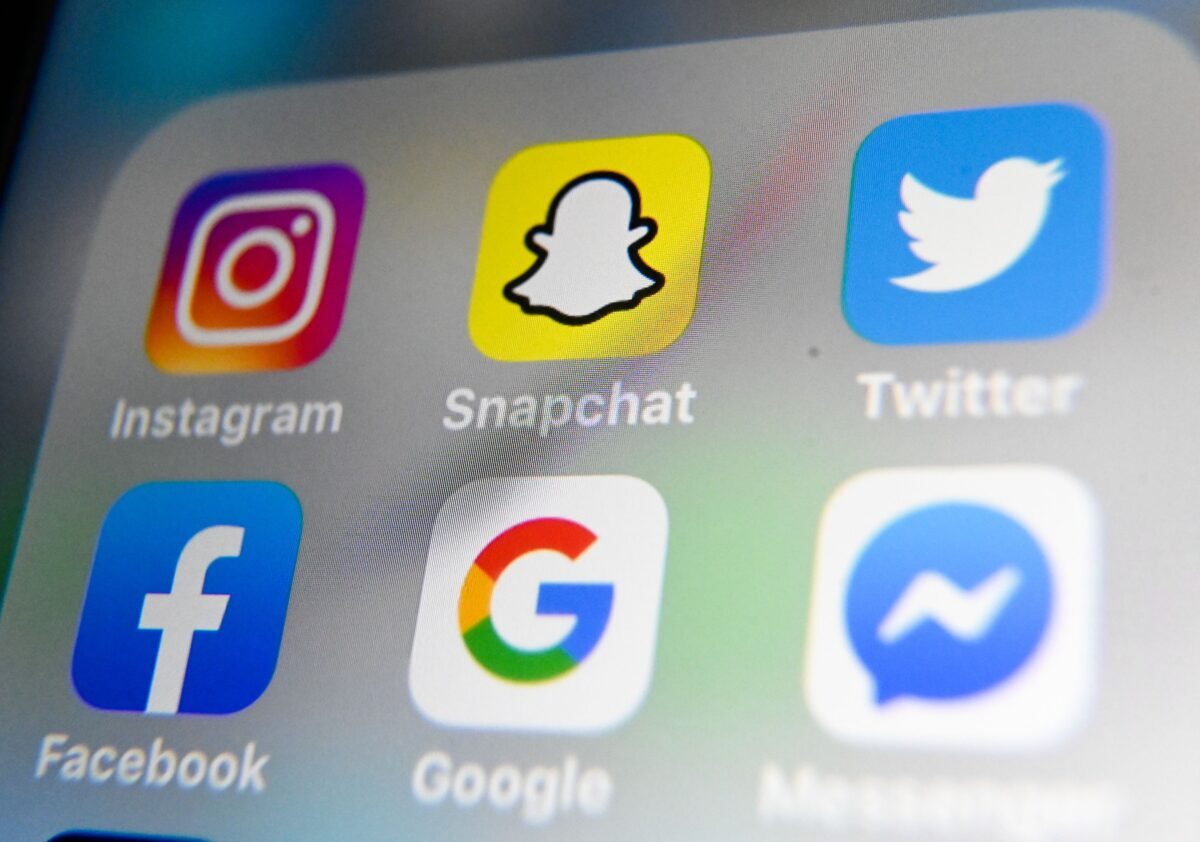San Diego County has filed a lawsuit against Big Tech platforms Meta, Snap Inc., ByteDance, and Google, claiming that the companies intentionally designed addictive platforms in the pursuit of profit. The companies own Facebook, Instagram, Snapchat, TikTok, and YouTube.
The lawsuit, filed by the San Diego County Board of Supervisors on Jan. 27 and announced on Feb. 6, argues that these platforms harm young people’s mental health.
The lawsuit demands major industry reforms, financial penalties, and transparency practices from social media companies similar to those required in Australia and the European Union.
“We won’t stand by while social media companies exploit children’s mental health for profit, nor will we be silenced by corporate influence,” Terra Lawson-Remer, the Board of Supervisors’ acting chair, who proposed the lawsuit in July 2024, said.
The lawsuit, filed under California public nuisance laws, contends that the companies purposely designed addictive platforms via endless scrolling, autoplay, and algorithm-driven content loops, thereby maximizing engagement at the expense of young users’ well-being.
The county asks a court to place transparency mandates on the platforms, order the companies to pay damages to help fund youth mental health services, and order them to incorporate stronger protections for children.
“The data is clear—social media is designed to be addictive, and it’s harming our kids,” Lawson-Remer said. “Tech giants know exactly what they’re doing—exploiting young people for profit while refusing to take responsibility.”
The county is asking a court to rule that the platforms must ban manipulative engagement features, such as infinite scroll, autoplay, and algorithm-driven experiences, while introducing stronger age verification to keep underage children off the platforms. The county also asked the court to mandate increased transparency in content algorithms and financial penalties for companies failing to implement these safeguards.
The lawsuit cites reports that San Diego’s Rady Children’s Hospital saw a 30 percent increase in children experiencing mental health diagnoses in 2023. The hospital also reported a 500 percent jump in pediatric behavioral health emergency room visits between 2011 and 2015, while suicidal thoughts and self-harm have increased significantly since 2010.
Supervisor Jim Desmond said that while media was harmful to youth, a lawsuit is not the answer.
“Where does government end, and parenting begin? We should be educating kids and parents about the dangers of social media, equipping them with the tools to navigate the digital world safely,” Desmond told The Epoch Times in an emailed statement.
“That means spreading awareness about parental controls, blocking apps, and online scams. A lawsuit won’t stop bullying, anxiety, or violence online—only education and strong parenting will. While I support warning labels on social media apps, I cannot support litigation as the solution.”
The county has asked the court to enter an order that Big Tech conduct constitutes a public nuisance under California law, making the defendants jointly liable. The county also asked the court to require the companies to abate the public nuisance and preclude the nuisance from happening again, and to award equitable relief to fund prevention education and addiction treatment.
Meta and Snap Inc. have not replied to requests for comment by The Epoch Times.
Researchers at the Brown University School of Public Health who studied social media’s effect on users said the infinite scroll and reward systems on the platform lull users into a flow-like state in which they risk experiencing a distorted sense of time.
Eric Schmidt, former CEO of Google, which owns YouTube, co-authored an article for The Atlantic with social psychologist Jonathan Haidt, positing that social media seems to be most harmful during early puberty, about ages 11 to 13 for girls and shortly thereafter for boys.
The lawsuit cited an April 2023 survey by the Pew Research Center suggesting that 36 percent of youth respondents admitted that they spend too much time on social media. Some teens in the study reported that they use social media almost constantly, with 35 percent saying that quitting would be somewhat hard, and 18 percent saying that it would be very hard.
A 2023 report by Common Sense Media found that 45 percent of teen girls who use TikTok reported being addicted to it or at least weekly using it more than intended. Meanwhile, 37 percent said the same about Snapchat, 35 percent about YouTube, and 33 percent about Instagram.














